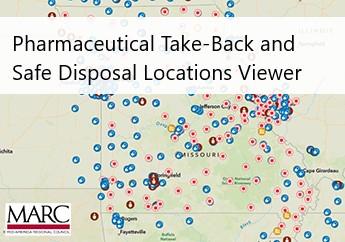
A 'pharmaceutical' or 'pharmaceutical drug', also called a medication or medicine, is a chemical substance used to treat, cure, prevent or diagnose a disease or to promote well-being. Medicines can relieve symptoms, prevent infections, cure or delay the onset of disease and prevent complications. Pharmaceuticals have contributed to improvements in life expectancy and quality of life of many people.
Concerns
According to the Centers for Disease Control and Prevention, over $1 billion worth of expired and unused prescriptions and medications are thrown in the trash, flushed or forgotten in medicine cabinets each year. Accidental exposure to medication is a leading cause of poisoning in children. One U.S. citizen dies every 14 minutes from a drug overdose, leading to 100 deaths per day across the country.
There is also a growing concern about pharmaceuticals appearing in our water bodies and drinking water. Many pharmaceutical drugs pass through the body and are excreted out in human urine. Improperly disposing of prescriptions and medications by flushing them down the sink or toilet when no longer needed can harm the beneficial bacteria that break down waste in septic systems and wastewater treatment plants. Municipal wastewater treatment facilities are not designed to remove all the ingredients from the medicines in the treatment process. Untreated or partially treated pharmaceuticals are then released into nearby waterways and can impact groundwater, polluting our drinking water and harming aquatic life. Some pharmaceuticals are known as endocrine disrupters or chemicals that manipulate the endocrine or hormonal system of humans and animals. Not all pharmaceuticals have known effects on aquatic life.
